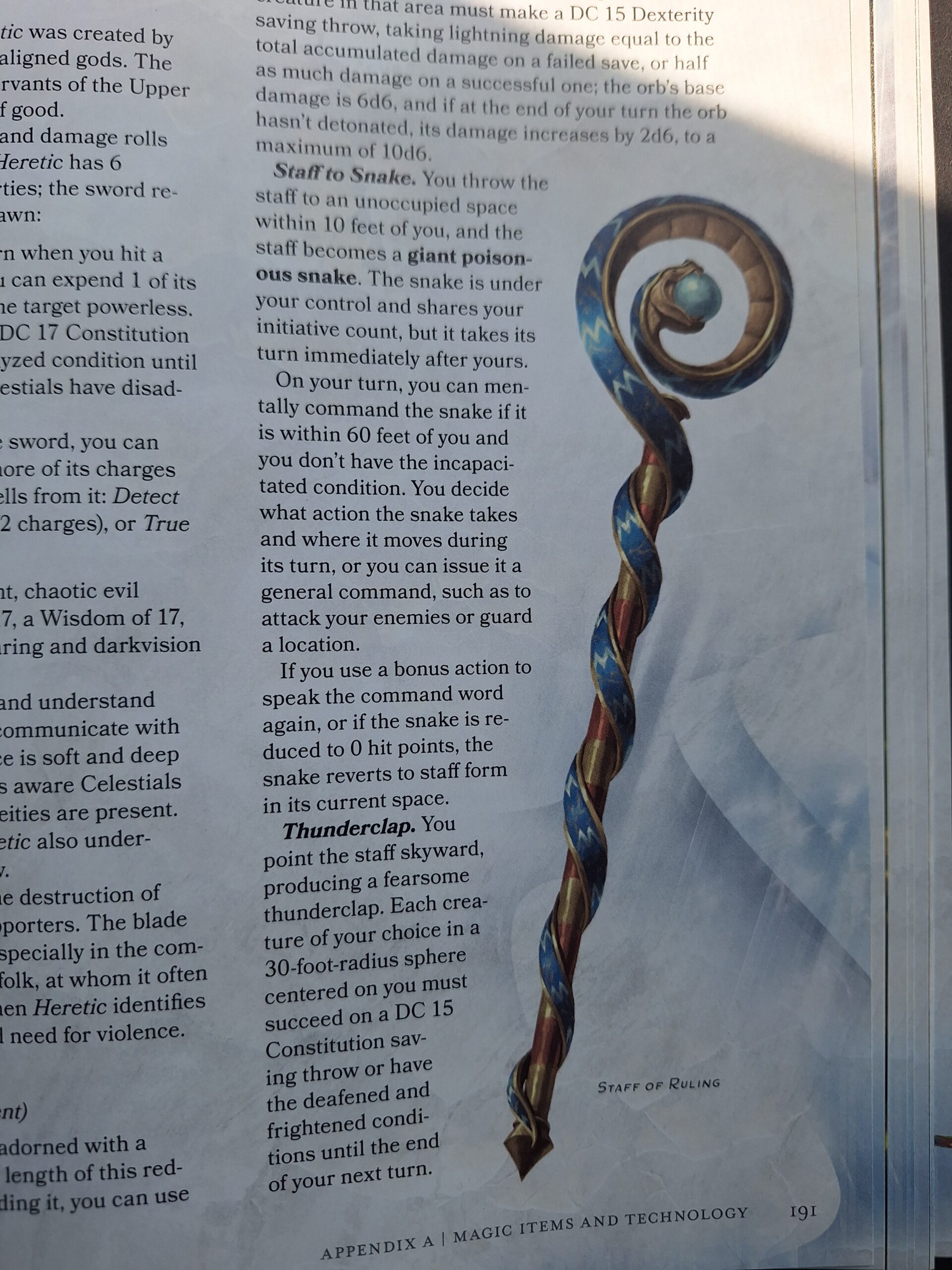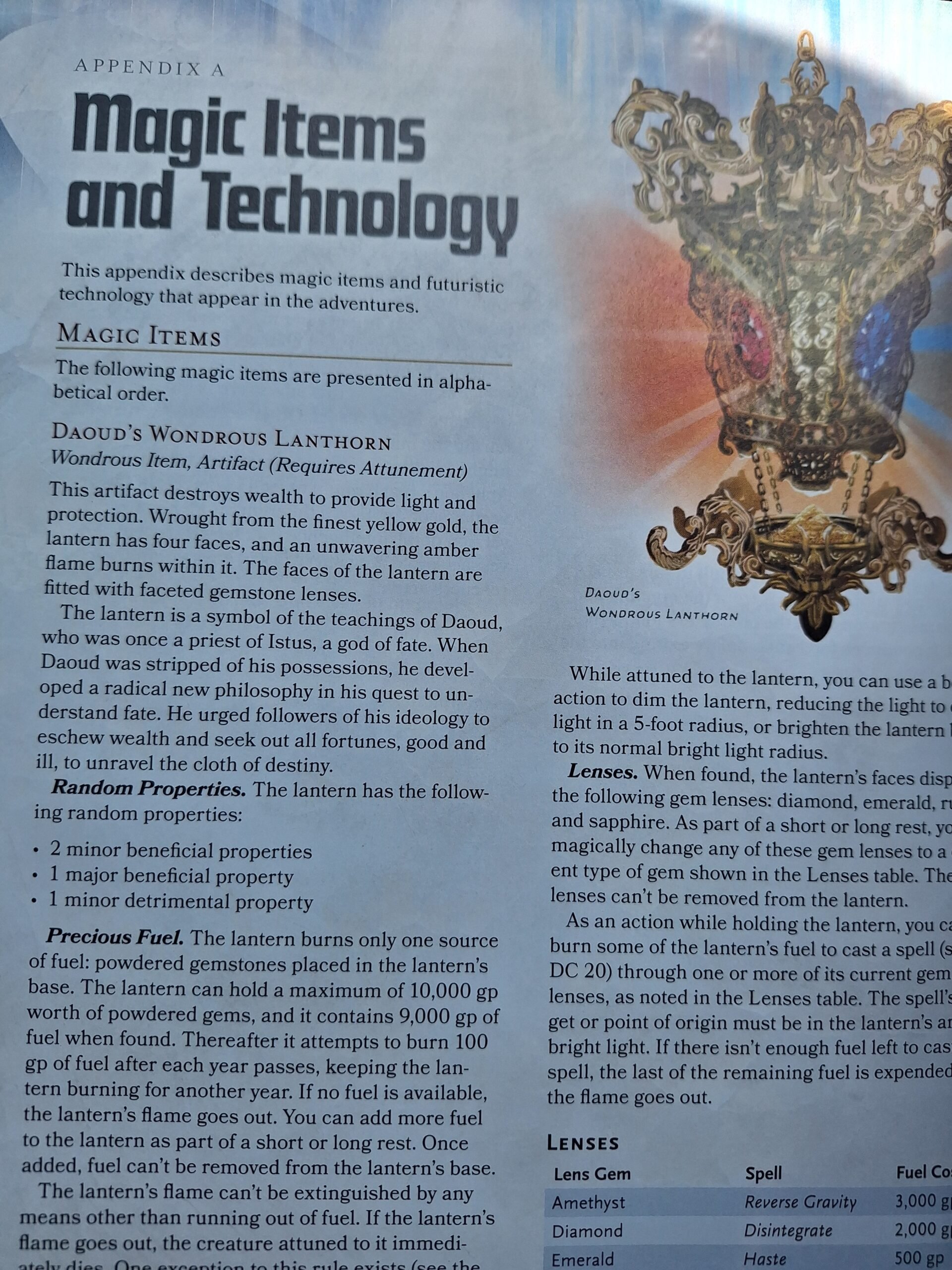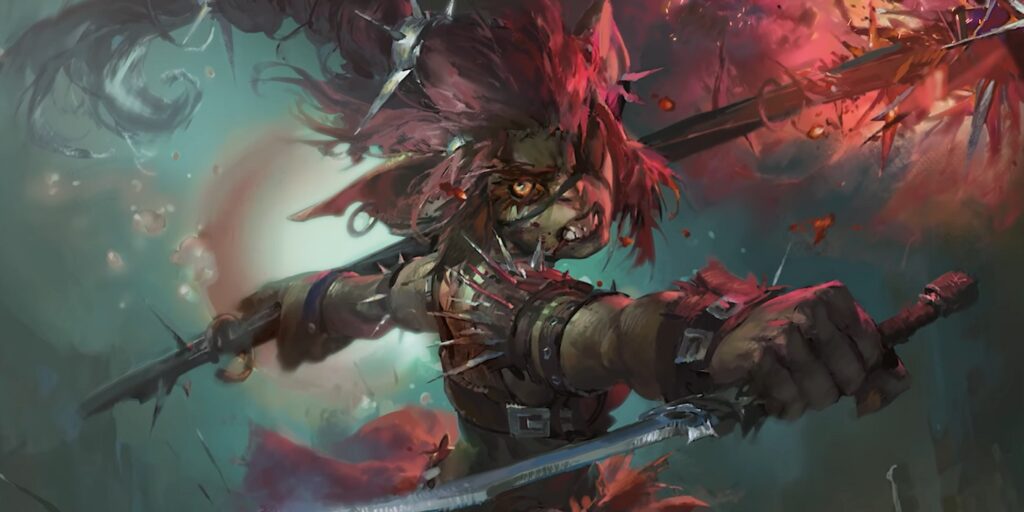D&D: ‘Quests from the Infinite Staircase’ Has Magic Items That are Simply Divine

One of the more delicious things about Quests from the Infinite Staircase is how flavorful its treasure gets. Magic items that are a meal.
Flavor gets a bad wrap in RPGs. There’s an old adage that says flavor is free. But that’s actually not true. Flavor makes all the difference. And, ideally, flavor is the source of the mechanics in the first place. You’re representing an idea in abstract, ideally you’re capturing the flavor of it. Good flavor makes for an amazing meal.
Even in recipes, you can’t just change out carrots for cucumbers or sage and rosemary for salt and pepper and expect the same food.
And I’m saying all this not just because I’m hungry right now, but also because Quests from the Infinite Staircase pulls from the early days of D&D where balance wasn’t as much of a concern as doing cool stuff. And cool stuff takes flavor and inspiration. Which is why, I think, these magic items feel so rich and textured compared to others. Let’s take a look!
Magic Items in Quests from the Infinite Staircase
Magic items hit different in this book, is what I’m trying to say. And one of the best examples of this, is the new Staff of Ruling. This feels almost Biblical—and I think that was maybe intentional. Maybe not the best idea considering that some oft hese adventures came out during the Satanic Panic, but hey, you know, we’re so far from it now, who even cares?
But the Staff of Ruling, as you can see, is a magical staff that very much embodies the “turn this staff into a snake” element that feels like a different kind of mythical magic. And, don’t worry, you can do exactly that. But not only do you turn it into a snake. You can turn it into a GIANT POISONOUS SNAKE because, you know, this is D&D. No time for regular snakes. What do you think you’re facing? A buncha chumps? Your new giant snek fren can act on its own, following your mental commands (which doesn’t take an action to do, so amazing action economy here) and doing giant danger noodle things in general.
But wait, there’s more. This staff also lets you create an orb of lightning that you can either send hurtling towards a group of enemies to explode for 6d6 lightning damage in a 20-foot radius sphere, or you can concentrate on it, and charge it up, adding 2d6 extra damage per turn, to a suggested maximum of 10d6, but hey, it’s your D&D game, remove those safeties, redline the engine, if you know what I mean.
And even THEN we’re not done with all the cool stuff this staff can do. It can also create a big thunderclap that makes everyone scared of you. Which is, admittedly, less cool than the other two, but in concert with the other features, makes you seem like a supreme sorcerer.
And if that isn’t good enough for you, consider the legendary sword Heretic. As the name suggests, this is a blasphemous weapon, created to steal power from the gods. Specifically from good-aligned gods, because the evil ones tend to be a lot more proactive about things that can steal their power.
To that end, it has 6 charges that power its heretical abilities. Destroy Devotion lets you spend a charge to paralyze a target you’ve ust hit, if they fail a save. Faith Hunter lets you spend an action and one or more charges to cast spells like Detect Evil and Good, Fly, or True Seeing. And, as you might expect, it’s Sentient and is as ardent about tearing down the church as Protestants were once they came up with the term “popery.”
But the big shiny new magic item is Daoud’s Wondrous Lanthorn. You know it’s going to be good with an old timey word like Lanthorn in the name.
This is an artifact that “destroys wealth to provide light and protection.” And if THAT isn’t just a metaphor for what we need to survive to D&D’s 100 year anniversary, I don’t know what is. Eschew wealth. Provide warmth and protection and community instead.
Now, this being D&D, the actual mechanical effects of the lantern at first imply the opposite message, which is accumulate as much wealth as you can or die, because the lantern burns gemstones and if the flame goes out, the creature attuned to it immediately dies. But EVEN THEN, you can evade that fate by forsaking material wealth and giving up on the lantern’s power. Then you can live.
So maybe there’s a lesson in here about how wealth only gives the illusion of power, and that real power rests in the hands of those who turn their back on the endless greed-fueled accumulation of wealth for the appearance of power. But, if I talk about that too much further, the comments section is going be bad, so let’s all just think on that a little.
Check out Quests from the Infinite Staircase for more lessons like “greed bad” and “magic good”.



